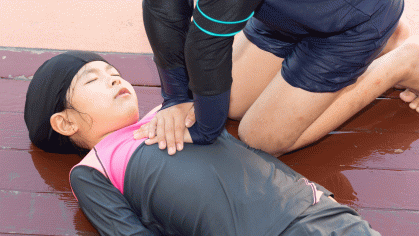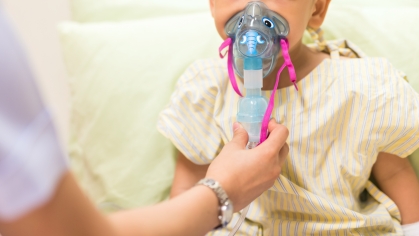The ARRIVE Together program is the only statewide law enforcement and mental health alternative response program in the nation
ARRIVE Together of Middlesex County, run by University Behavioral Health Care (UBHC) at Rutgers Health, has expanded its partnerships to include the East Brunswick, South River and Cranbury Police Departments, making New Jersey the first state in the nation to have a statewide law enforcement and mental health alternative response program.
ARRIVE Together (the acronym stands for Alternative Responses to Reduce Instance of Violence and Escalation) is now in all New Jersey’s 21 counties. It brings together police personnel trained in crisis intervention and de-escalation techniques with a certified mental health screener and crisis specialist to respond to 911 calls involving behavioral health incidents.
Sharon Smith-Kemper, program manager of Middlesex County Acute Psychiatric Services at Rutgers UBHC, discusses the need for this program.
How does early intervention improve outcomes for people experiencing a mental health crisis?
Early intervention allows for a prompt response tailored to an individual’s mental health needs, reducing the risk of escalation and avoiding punitive measures. When intervention occurs early, people in crisis can access appropriate treatment and support before their symptoms worsen, leading to better immediate outcomes and reducing the likelihood of repeat crises.
This approach also helps individuals remain connected to community resources, fostering recovery in a safe environment.
Providing mental health support during crisis responses builds trust between the community and local authorities.
Sharon Smith-Kemper
Program Manager, Middlesex County Acute Psychiatric Services, Rutgers UBHC
How does having mental health professionals alongside law enforcement responding to behavioral health calls help to de-escalate a potentially volatile situation?
Mental health professionals bring specialized skills in crisis de-escalation, assessment and therapeutic communication that can significantly reduce tensions. By working alongside police, they can quickly identify symptoms and intervene with techniques to stabilize the individual, often without needing restraint or force.
Mental health professionals also support police by educating them about mental health issues, contributing to a more compassionate response. This collaborative approach reassures the individual in crisis, helping them feel understood rather than criminalized, which can reduce resistance and improve cooperation.
What long-term community benefits arise from providing timely mental health support during police responses to crisis episodes?
Providing mental health support during crisis responses builds trust between the community and local authorities. When residents see a compassionate approach to mental health crises, they feel safer and more likely to engage with support services.
Over time, this fosters a culture of care and resilience, where community members are more willing to seek help before a crisis occurs. Reduced rates of escalation and fewer arrests for mental health-related issues also relieve the burden on emergency services, enabling a more sustainable, supportive community infrastructure.
How does the ARRIVE Together program work?
The ARRIVE Together program brings law enforcement and trained mental health professionals together to support someone in crisis. Mental health professionals are dispatched from the designated screening center of each county. This program can be initiated through at least four different pathways:
- Law enforcement officers in participating departments can request ARRIVE Together support when they encounter a situation where mental health expertise may help de-escalate or provide specialized intervention;
- When calls are received through the crisis hotline, the screening center can collaborate with police dispatch or directly with ARRIVE Together screeners to dispatch to a location;
- 911 mental health crisis calls will be directed to the ARRIVE Together team for response when available or the dispatcher may coordinate the team’s involvement if the crisis is deemed suitable for ARRIVE Team;
- Community professionals may collaborate with law enforcement to dispatch ARRIVE Together teams if the crisis response requires an on-site mental health support intervention with police assistance.
Anyone can contact Acute Psychiatric Service, the designated screening center for Middlesex County, at 855-515-5700 or the 988 Suicide & Crisis Lifeline.




